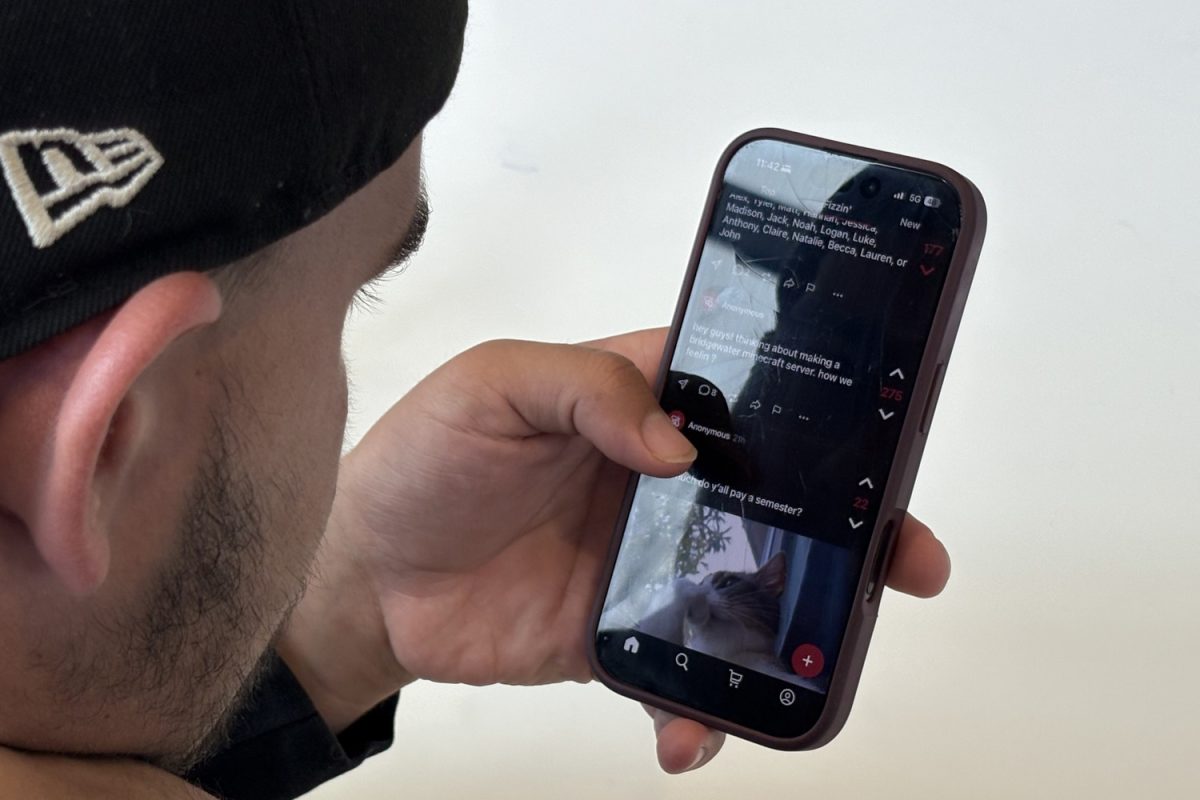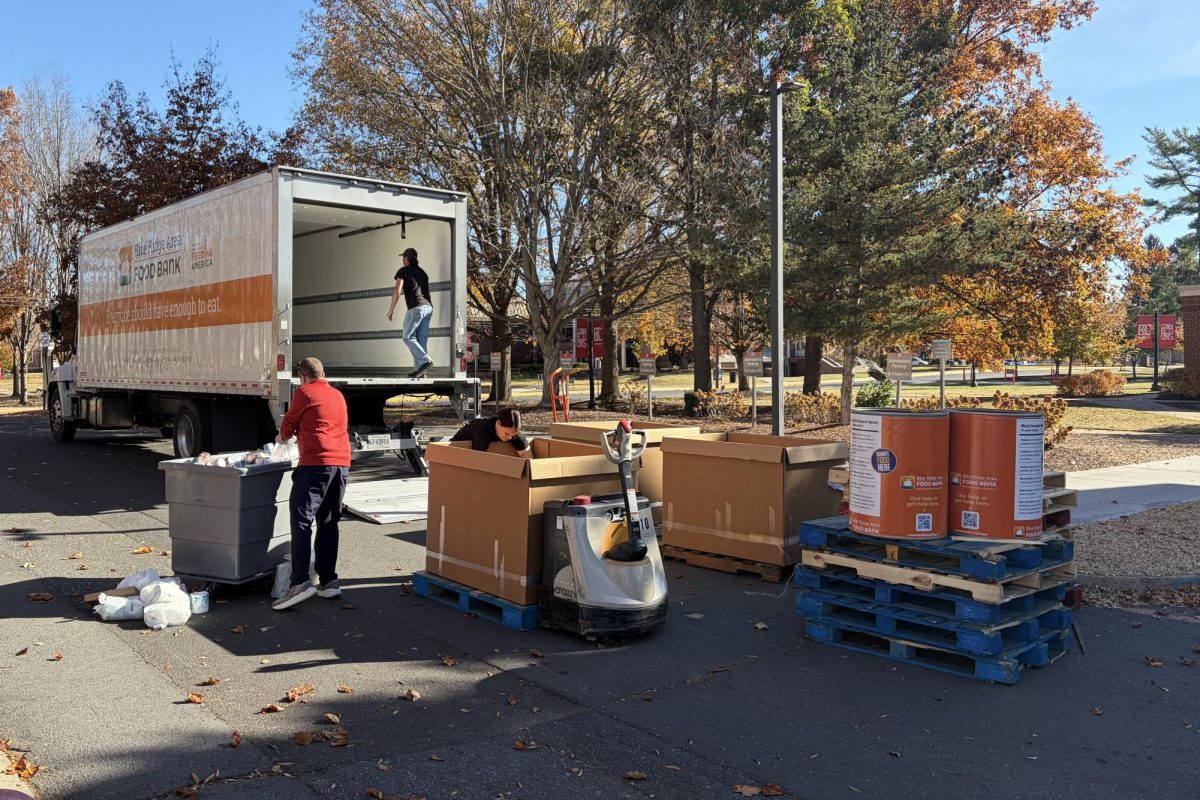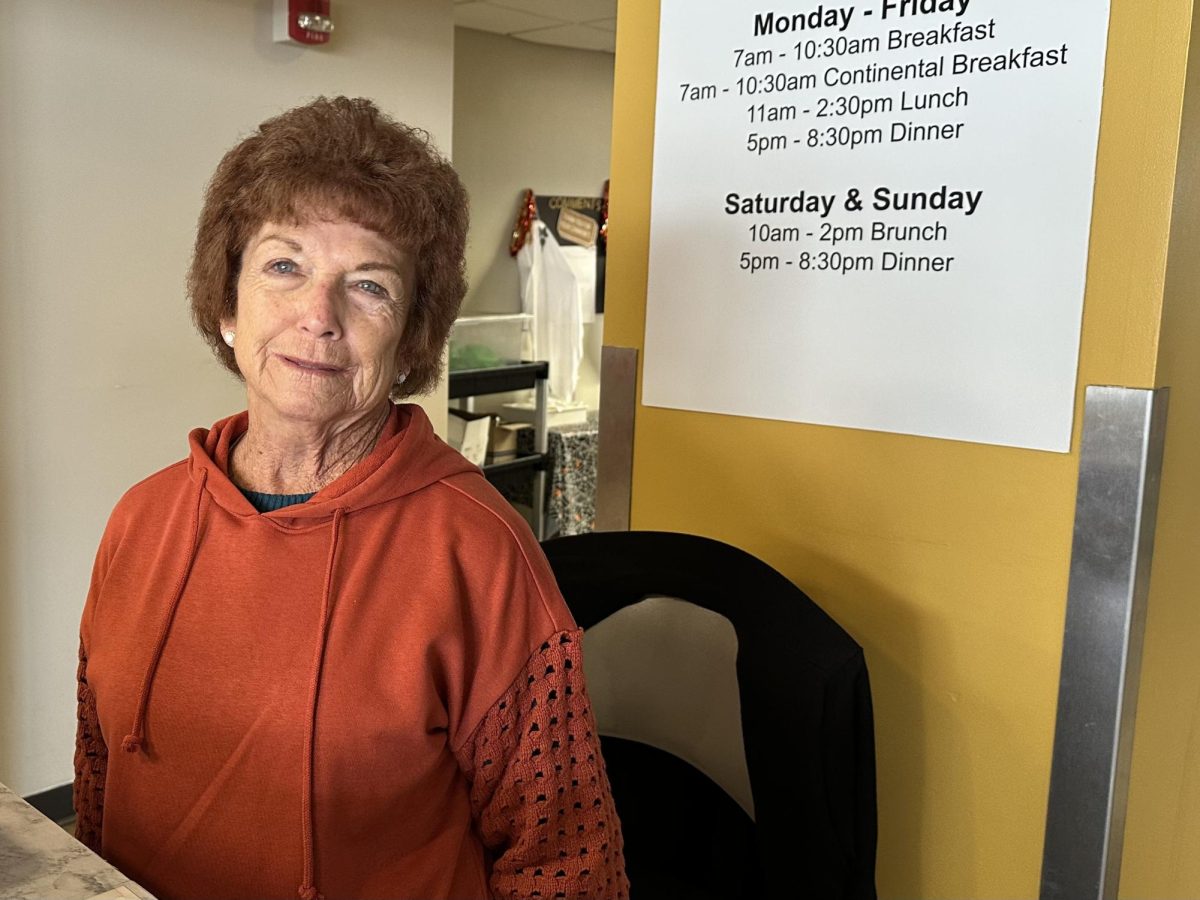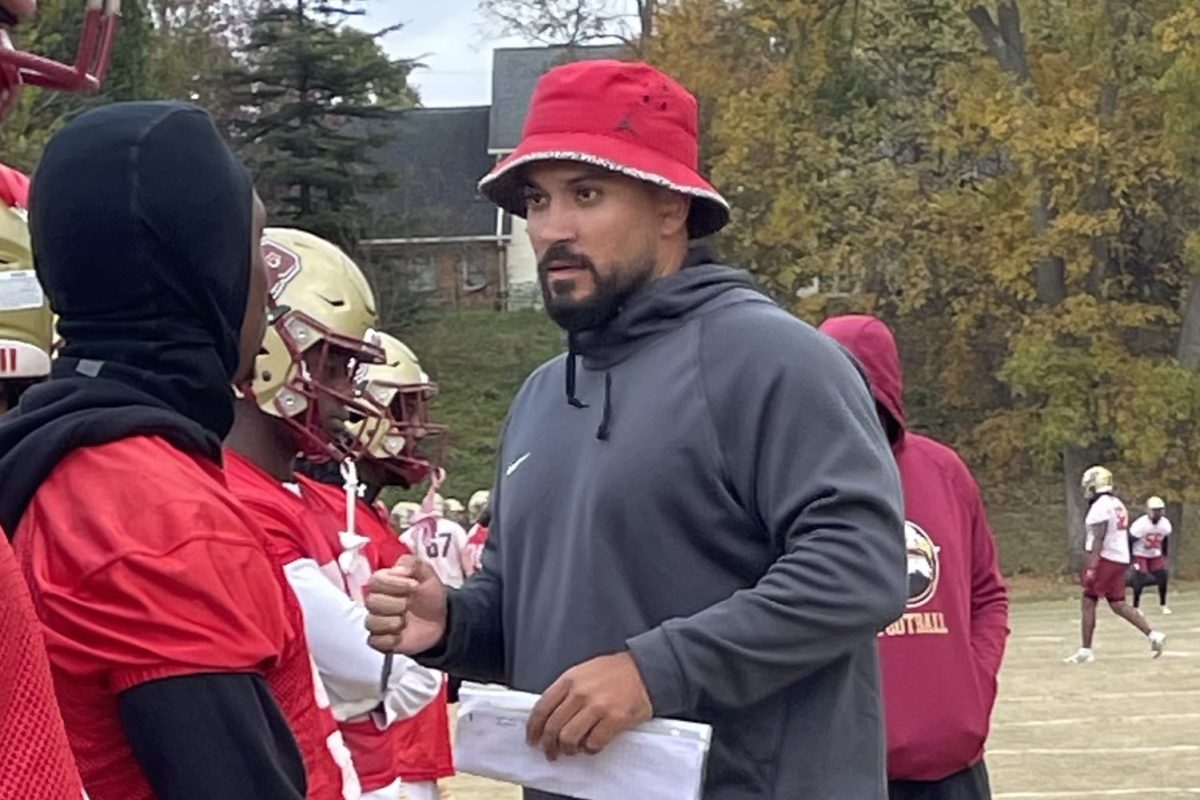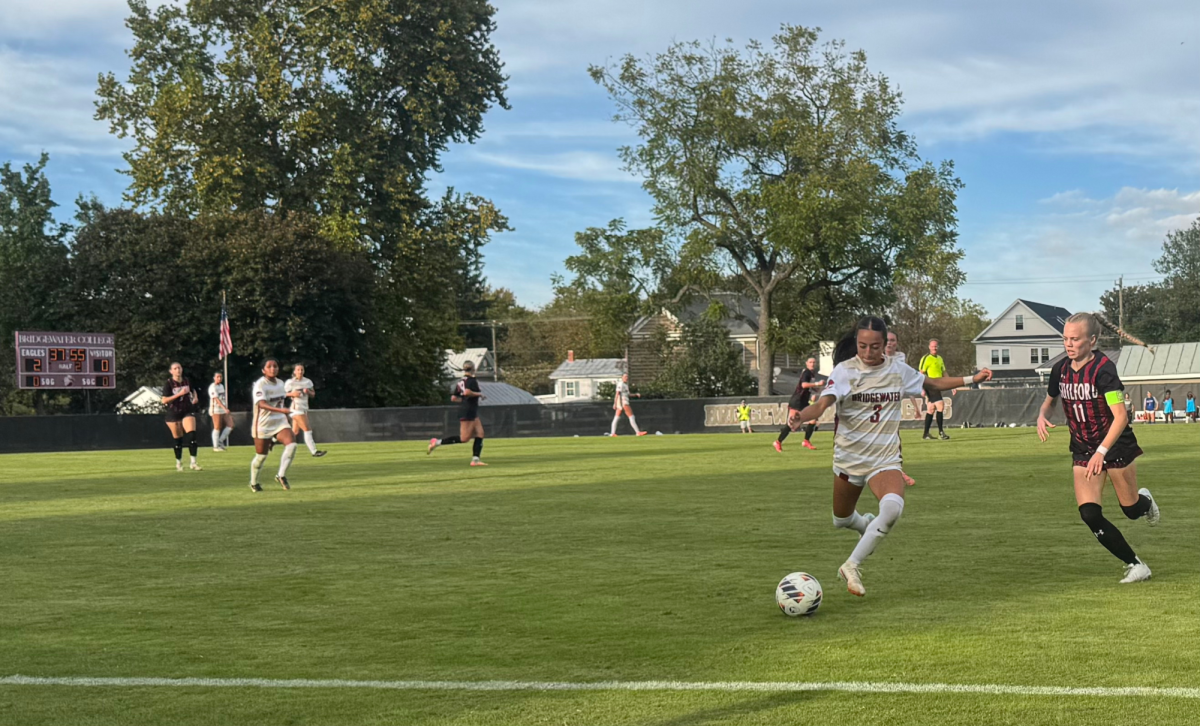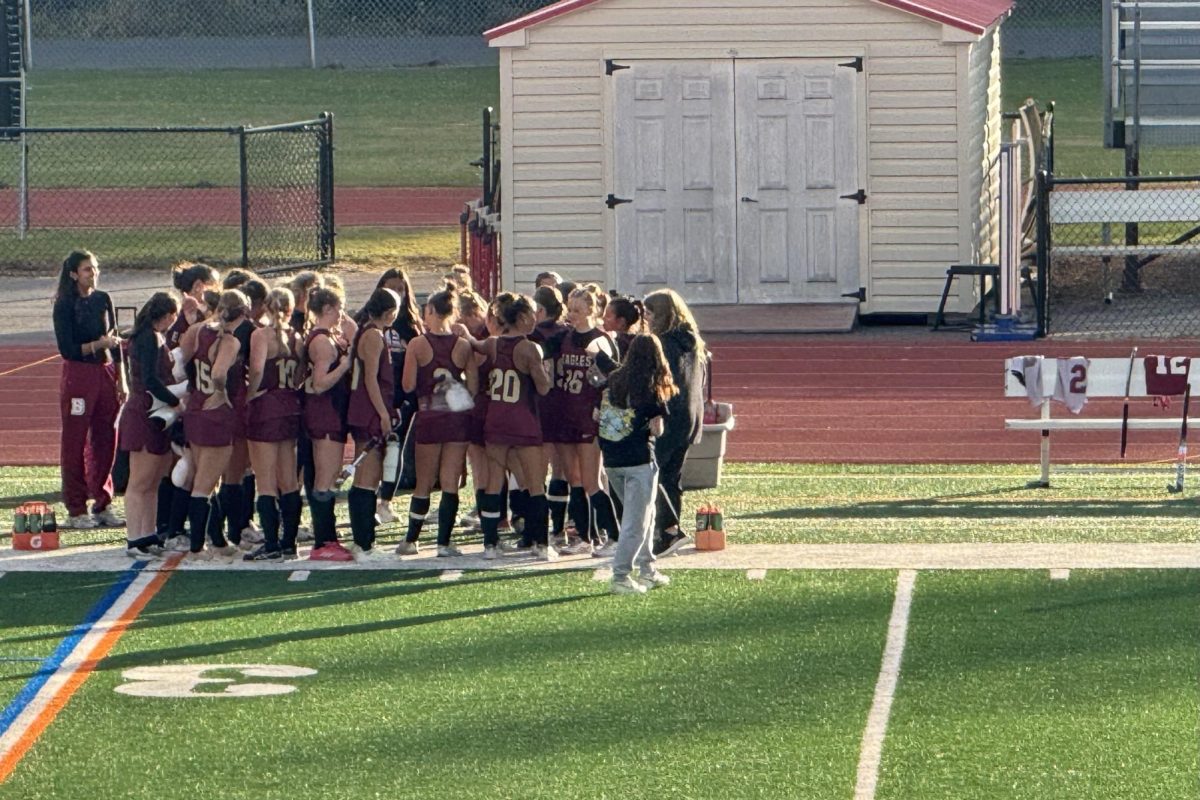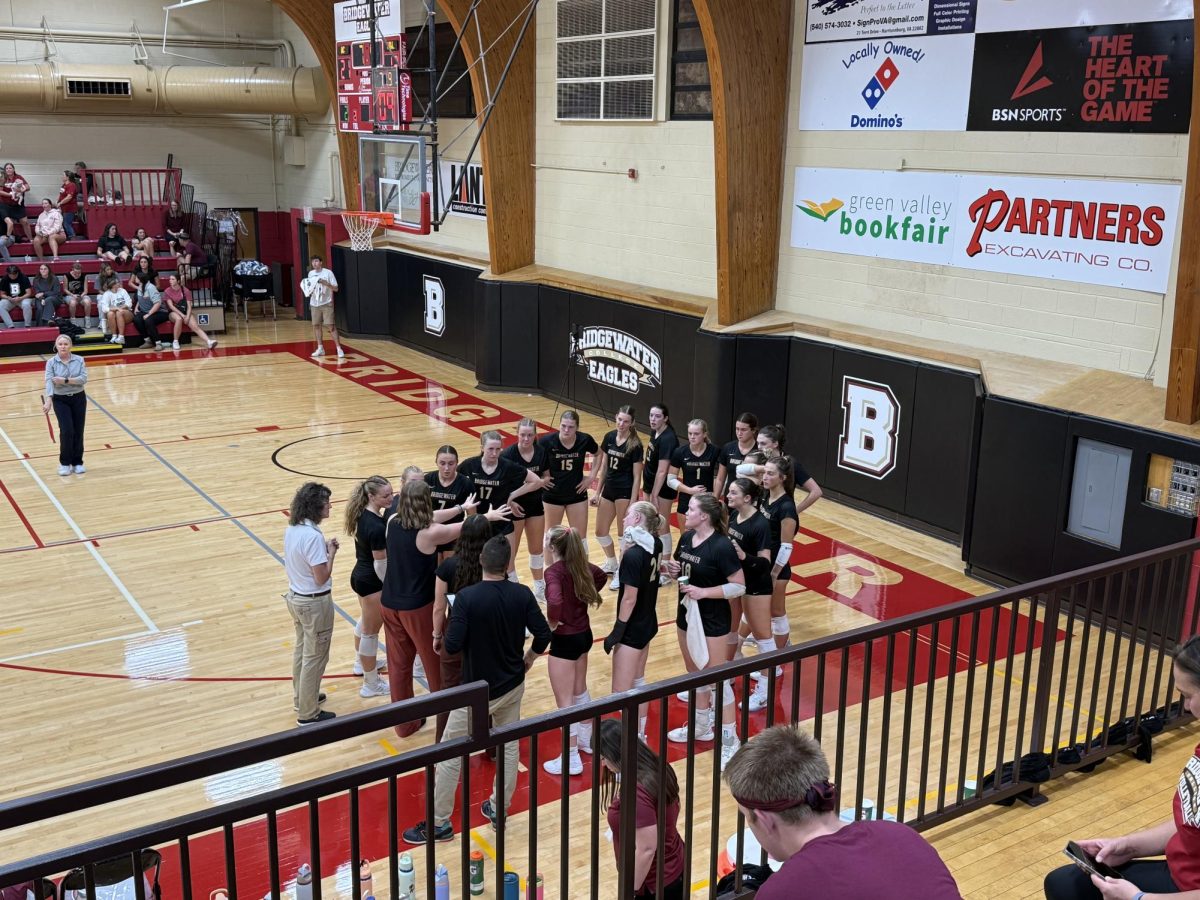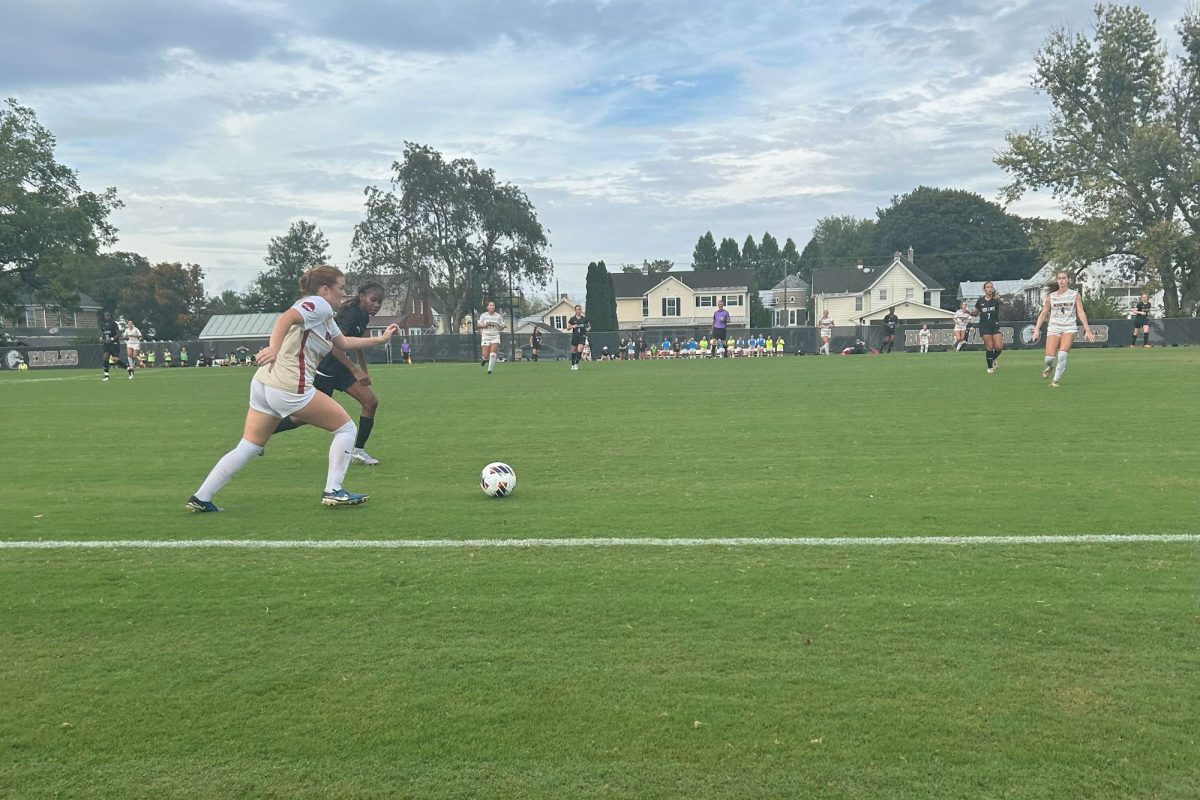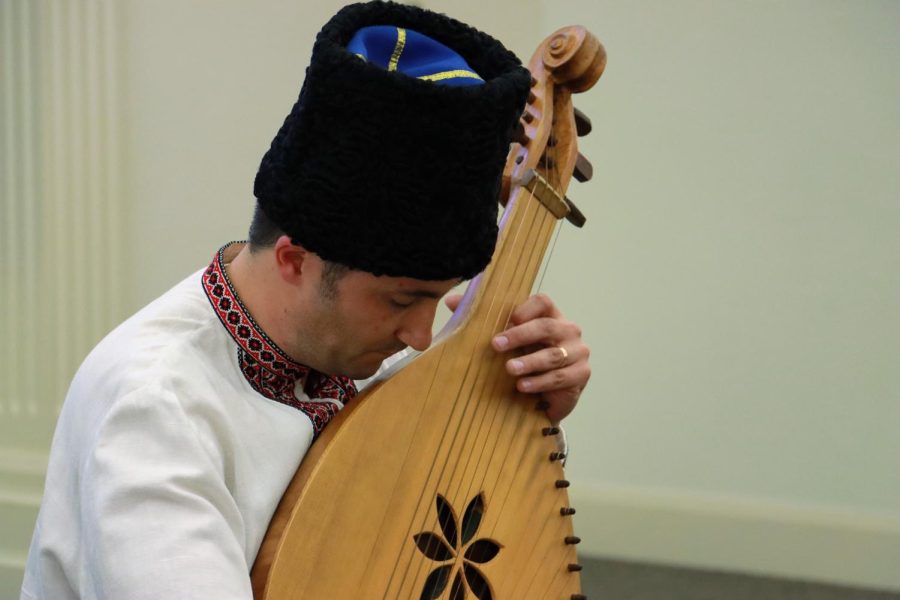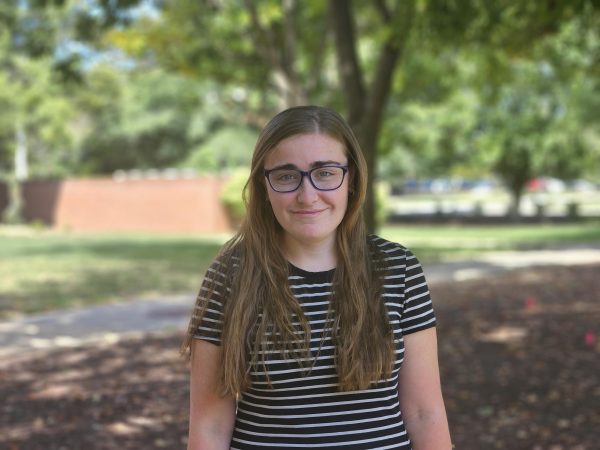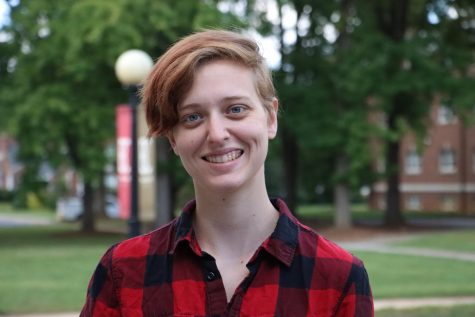Crossroads of the World
Alex Lagoda’s Ukrainian Concert
Alex Lagoda plays the Bandura and sings a traditional Ukrainian folk song in Stone Chapel.
March 28, 2023
Bridgewater, Va.- On Wednesday, March 22, Alex Lagoda presented works by the Ukrainian kobzars of past centuries in the Carter Center. His host for the evening was Professor of English Stanley Galloway, along with Nicole Yurcaba, a former instructor of English at Bridgewater.
“I met Lagoda at the Baltimore Ukrainian Festival in 2022,” said Galloway. “We reconnected locally at several Ukrainian-awareness functions. I thought his performance was an exciting blend of literary and musical traditions.”
Galloway and Yurcaba read “Liturgy for Ukraine” as the performance opened. The two co-wrote the piece after visiting the country back in 2019, and it was published online by North of Oxford, an international literary journal.
“It looks at religious and secular tensions observed in Ukraine,” said Galloway. “Writing the poem collaboratively pushed me to consider aspects that I had overlooked or had not considered important or poetic. It weaves two perspectives into something that is neither mine nor Yurcaba’s, but a synergistic voice of its own.”
Later in the event, Yurcaba did a reading of “The Mighty Dniper,” a poem by the national poet of Ukraine, Taras Shevchenko. It is about the mighty river Dniper that flows through Ukraine, considered the heart of Ukraine itself.
Lagoda went into the history of the kobzars of Ukraine. According to Lagoda, many kobzars were Ukrainian traveling bards who were once freedom fighters.
After being captured, the Russian soldiers blinded them in hopes they would be unable to fight again. However, most traded the sword for a bandura.
Banduras are a handmade instrument that kobzars would play for old-world folk. It is usually made by the kobzar himself out of spruce, willow, and walnut.
Lagoda’s bandura was made by a friend in Ukraine during their senior year of high school. Banduras are not allowed to be made with power tools because they kill the soul of the instrument.
Among many of the kobzars that Lagoda spoke about, Obstap Versesai, known as the Last Kobzar, was one of the most famous. Versesai was invited to St. Petersburg to play for the Russian tsar, and though the performance moved the tsar, they were unable to end the violence that the Russian soldiers had brought about.
Another famous kobzar was Fedir Holodniy. Holodniy was called “The Cold” due to always being barefoot, even during the winter.
In 1934, Russia decided to host a recording session for all the Ukrainian kobzar, which turned out to be a trap. The kobzars who arrived were instead taken to be executed.
During the Soviet Union, Josef Stalin allowed Ukrainian practices to be legal, including kobzars and their famous traditions. Stalin did this in hopes of stopping any rebellion during World War II.
Some of the folk songs Lagoda sang and played were “Fly oh Eagle, Fly oh Grey One,” “Bandura,” “I Once Had a Horse,” Burklaks,” “The Warrior Mound,” and “Hey Falcon.” Lagoda also talked about the film “The Guide,” which is about the memoirs of an orphan American boy who leads the kobzars in 1934.

